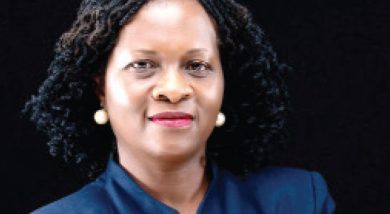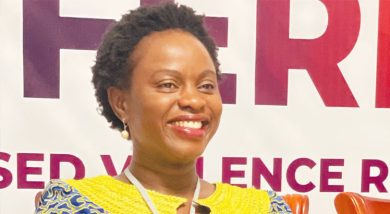Jaha dukureh: un women goodwill ambassador for Africa
A renowned activist, she herself is a survivor of female genital mutilation (FGM) and child marriage.
On November 19 to 27 2022, Jaha undertook a mission to Liberia to support the Liberian Government in their efforts to eliminate all forms of violence against women and girls, including harmful practices such as FGM and child marriage.
“I went through FGM when I was one week old. I have been a child bride twice in my life. The first time when I was married off, I was 15 years old. Girls like me don’t usually make it this far.
One of the greatest honours of her life has been the appointment as UN Women Goodwill Ambassador for Africa.

Jaha cares about this work as her my life and passion.
“It’s about my daughter’s future and the future of girls in our continent.
“In my country alone [The Gambia], more than 77 per cent of women have already been subjected to FGM. Globally, it is estimated that more than 200 million girls and women alive today have undergone female genital mutilation,” she said.
Every year, more than 600 million girls around the world are forced to get married against their will.
Jaha describes forces marriages as giving another person the right to rape them over and over again.
“The fact that I am now an American citizen and can say what I want, speak freely about these things, and know I am protected by law… it’s great. It’s emotional. It’s the American Dream. It’s that success that all immigrants dream of when they come to the US,” Jaha Dukureh told CNN in 2016.
Jaha first gained prominence with her successful change.org petition urging the Obama administration to study the scope of FGM in the US.
She became Time Magazine’s 2016 list of the 100 most influential people in the world.
She is the founder of Safe Hands for Girls, an organisation that fights to end FGM and provides support to survivors in both the US and abroad.
Her efforts contributed to the Gambian government’s ban on FGM and a federal law in the US, making it illegal to transport girls abroad for that purpose.
In 2018, Jaha became the first United Nations Women Goodwill Ambassador for Africa and was nominated for the Nobel Peace Prize.
Hundreds of millions of girls have gone through some of the things she went through, but the activist said they never get the opportunity or the platform to stand in front of people, share their story to be seen or heard.
She admits that it’s not an easy thing to share her story over and over again, but feels someone has to do it.
“We cannot import solutions and expect change. Change has to be led by people with the lived experience that can stand up and say, we are against this for this reason because we know what it feels like and we have been through it,” she said.
This is why when it gets tough and she wants to give up, Jaha can’t do it because giving up will be harder for the next girl to stand up.
As long as she is alive, she will wake up every single day and scream to the world that FGM is wrong and scream to the world that child marriage is not different from rape.
“We all have a moral obligation to ensure that violence against women ends. We can do this through advocacy. We can do this through individual work. We cannot stay silent,” she added.
Jaha said we should ensure to support communities to lead that change themselves.
She observed that if we do anything other than get communities to lead the change themselves, 20 years from now, 30 years from now, we will be back in the same communities talking about ending FGM, ending violence against women and girls.
She suggested handing power back into the hands of communities and looking at different, better ways to build prosperity.
Jaha said FGM is considered one of the fixed traditional practices.
She said the only way to change that mentality is to work hand in hand with traditional leaders who understand our traditions and that it is not static.
“Cultures change. We have a lot of traditions, but once we realise as a community, that not all these traditions are good for us, we leave them behind. Now it’s time to ensure that, no girl, not only in Africa, but around the world, continues to suffer as a result of FGM,” she said.
Her observation is that violence against women and girls continues to happen in this continent because women are not economically empowered.
And until women earn their own money, we will not end violence against them.
“My commitment to the people and Government of Liberia is that I will make myself available and work with you to ensure that the lessons from other countries can be considered in relation to Liberia so that we don’t lose anything. It’s a win-win for everyone. We stay strong. We uplift women out of poverty




1waqvn